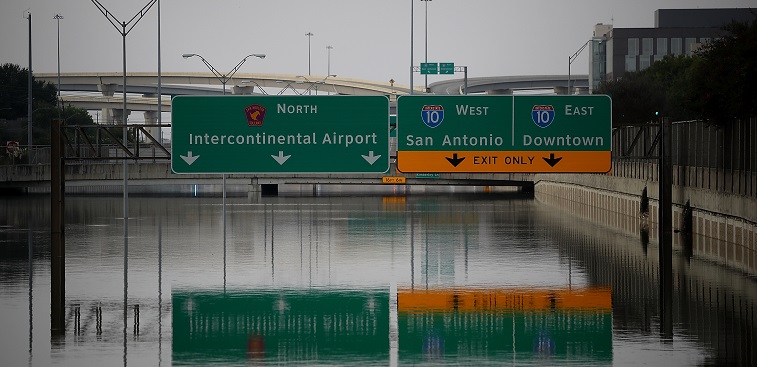Hurricane Harvey was a unique storm that, months later, still has the Gulf Coast chemical industry and other stakeholders discussing the lessons learned. On Monday, this discussion was amplified in Pasadena, Texas, as CEOs, regulators, senators and other stakeholders met in a daylong session at the Houston Area Safety Council headquarters.
The event, organized by the American Chemistry Council and Texas Chemical Council, was opened by LyondellBasell CEO Bob Patel, who noted the vast chemical facility presence along the Texas Gulf Coast and the interconnected supply chain for the country that is at risk when storms strike. Patel remarked that Harvey was “much larger than anything we would have imagined.”
If ethylene capacity is knocked offline, for instance, that can affect other industries and cause shortages in products including medical devices, apparel and construction materials.
Numerous speakers on Monday noted that Harvey won’t be the last hurricane. Because of the Texas Gulf Coast proximity to raw materials, infrastructure and shipping routes, they said, companies will need to continue to operate in the region and everyone will need to be prepared for future storms.
So, an underlying theme of the day’s event was resiliency and recovery, both in terms of facilities and people, as well as finding ways to make emergency preparation and response even better next time.
Patel’s introduction was followed by a panel discussion moderated by ACC CEO and President Cal Dooley. Patel, Covestro CEO and Chairman Jerry MacCleary, Dow Chemical Chief Operating Officer Jim Fitterling and BASF executive Ken Reid discussed how each of their companies weathered the storm, both in terms of how individual facilities responded and how logistics, communication and other support was conducted at the corporate level.
The importance of people
At almost every point, panelists inevitably returned to a recurring theme: The importance of people, both employees and the community at large.
Throughout the day, panelists and prepared videos told stories of employees who directed charitable efforts, provided temporary housing for employees, made sure employees could check in on families and their homes. These videos also highlighted employees whose homes were damaged and how they were supported by their employers, sometimes to the point of people being given time off to help their co-workers clean out and repair their homes.
Covestro’s MacCleary repeatedly emphasized how important people are — that you can’t do anything at a plant without smart, talented people. He pointed out the importance of allowing site managers to do their job and being able to make safety decisions on their own. As MacCleary noted, site operators are empowered to decide when a storm-affected site needs to shut down.
Fitterling followed by noting that the “first order of business is people: making sure they’re safe. Not just safe at work, but what about their homes?” In some cases, a later panel noted, employees are still out of their homes.
BASF’s Reid discussed how his responsibilities included leading the response team that took care of people. Right away, he said, BASF saw the storm would affect many sites and many employees, so they enacted a plan to support those people from across the country, including buying crated materials that employees could later use to fix their damaged homes.
Infrastructure and supply lines
Maintaining the chemical industry’s resilency during a storm also has an infrastructure and supply component, whether it’s what to do to improve the Houston Ship Channel, keeping supply lines open or making sure facilities can handle a multi-day event, For example, food and diesel fuel supplies at many sites ran low as the storm dragged on, Patel and other executives said. They also noted the need to look at hardening facilities, and even rethinking aspects of site design for future facilities.
The need for preparation doesn’t end after the storm moves on, either: A lunch session noted that small details, like having contracts ready for debris removal, can be an overlooked component of post-storm response but can cause a lot of headaches if not handled efficiently and effectively.
Overall, the mood was optimistic despite the ferocity of Harvey and the knowledge that other storms will hit. Chemical companies will continue to invest in the region, will continue to improve their operations and planning, and all stakeholders expressed enthusiasm about investing in infrastructure, better communications and other improvements.
As LyondellBasell’s Patel said, “What I was most impressed by was the human spirit, and the amount of dedication and ownership of our people to get to the facilities, to help out, when in many, many cases they were personally impacted by the storm. … It’s just remarkable, and it’s why we continue to invest with confidence in the Gulf Coast.”
SmartBrief and ACC publish a daily newsletter on the chemical industry. View the latest issue and sign up for free.
